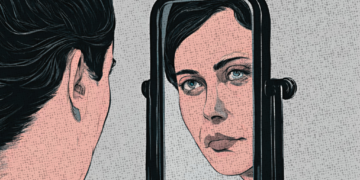Goldilocks would have made a good central banker – she valued getting just the right amount of something.
In her eyes, the latest inflation figures would have been “too cold”, as prices rose by less than 1 per cent in 12 months, according to the Australian Bureau of Statistics.
Anything above 2 per cent would have been “too hot” and somewhere in between “just right”.
For while consumers might not like it when prices rise, moderate inflation is a sign of a healthy economy, which is why the Reserve Bank has a medium-term inflation target of 2 to 3 per cent per year.
Why is some inflation better than none?
EY chief economist Jo Masters said we aspire to achieve moderate inflation, as an economy in which prices are static is one where equipment and people sit idle.
Moderate inflation, on the other hand, is a sign of a healthy economy with sufficient demand, as businesses can raise their prices when enough people want to buy their stuff.
Higher prices then lead to stronger revenues and allow businesses to take on more staff, kickstarting a cycle of increased consumer spending feeding into stronger jobs growth and even more consumer spending.
But the exact opposite happens when prices fall.
“If households and businesses expect prices to fall, they tend not to buy something today and [instead] hold off until tomorrow,” Ms Masters said.
And if [consumers] don’t spend today, there’s less money going into the economy, so fewer jobs are created, so then people’s income goes down and they have less to spend.
“So you can end up in this deflationary cycle.”
Which brings us back to the present day.
Over the three months to June 30, Australia suffered just its third bout of annual deflation since 1949, as the temporary suspension of childcare fees and plunging petrol costs cut prices by 0.3 per cent.
The federal government has since ended its free childcare policy and raised the tobacco excise tax by 12.5 per cent – resulting in a 0.9 per cent jump in consumer prices over the 12 months to December 31.
But economists said the underlying data pointed to insufficient demand.
Should the government increase spending?
University of Newcastle economics professor Bill Mitchell said most of the inflation at the end of last year came from “administrative price changes” rather than anything to do with “the market driving up excessive spending”.
BIS Oxford Economics chief economist Sarah Hunter made a similar point, noting that the pace of underlying inflation came in at just 1.3 per cent over the 12 months to December 31.
Professor Mitchell said the quarterly price rises published on Wednesday were driven by changes to childcare policy and excise taxes, and noted other data showed there was plenty of “productive capacity being wasted in the economy”.
“There’s people out of the labour force that really want to work, but just can’t or won’t look because there’s no jobs … and you’ve got lots of unemployment,” he said.
“So there’s unlikely to be inflationary pressures from increased spending arising from the so-called ‘overheating effect’.”
Professor Mitchell told The New Daily this meant the government could be doing more to combat unemployment.
“There’s incredible scope, much larger scope than the government will admit, for them to increase the deficit, reduce the waste of productive resources, and get us closer to a position where we might have to start worrying about inflation a bit, but we’re nowhere near it now,” he said.
“If you’ve got mass unemployment and high rates of underemployment, the fiscal deficit is too low.”

Professor Mitchell’s comments come after research from the Grattan Institute found it would take longer for unemployed Australians to find new jobs during this recession than most in Australian history.
The think tank argued at the time that stimulus was being withdrawn too soon.
“And the stimulus is made up of measures not particularly likely to create jobs, such as income tax cuts (where much of the money is likely to be saved rather than spent) and transport infrastructure, which creates fewer jobs per dollar spent than services such as child care, health and aged care,” economists Brendan Coates and Matt Cowgill wrote.
“We shouldn’t be content with a recovery that putters along at a below-average pace.”















